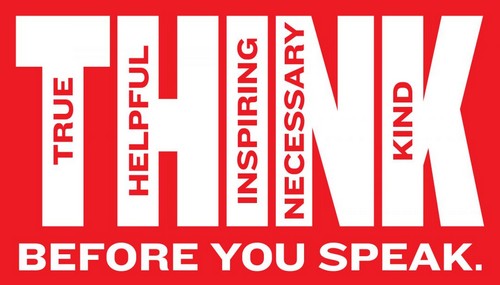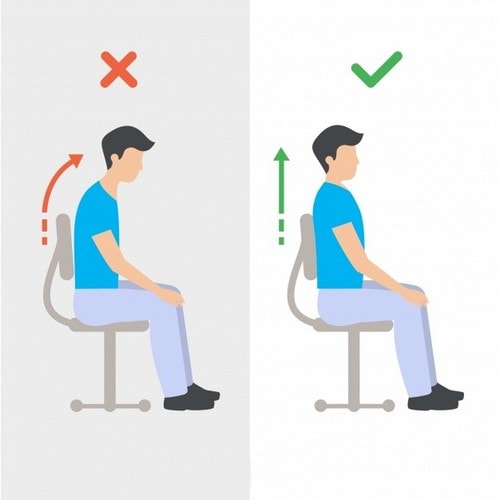
10 Effective Tips for Clear Communication

Master the art of clear communication with these top 10 tips on how to articulate your thoughts From speaking slowly to exuding confidence, learn the techniques to present yourself in a confident and effective manner
Mastering the art of clear and confident communication requires considerable practice. While some individuals possess the natural ability to articulate their thoughts with ease, others may need to put in more effort to capture their audience's attention. A systematic approach can significantly improve your communication skills and prove beneficial in both personal and professional settings.
1) Speak slowly
Effective communication is a crucial skill that every professional needs to master, especially when it comes to impressing business leaders. Your ability to articulate your thoughts clearly and concisely can make or break your chances of acing an interview.
Speaking with authenticity and confidence is crucial in any situation. However, many individuals struggle with their delivery, resulting in a fake or shaky voice. To avoid this, it's essential to approach communication with full faith and sincerity. This means committing to your message and making it a part of your daily habits and lifestyle.
One practical step towards effective communication is to start speaking slowly. This doesn't mean taking long pauses between sentences, but rather gathering your thoughts and delivering your message calmly and clearly. By doing so, you'll gain control of the situation and ensure your audience can understand you better. This is particularly important when speaking with important individuals, as it helps prevent overlapping speech and unpleasant delivery.
2) Breathing
Incorporating breathing exercises into your daily routine can be incredibly beneficial, according to experts. With consistent practice, it can become second nature and you won't have to consciously think about it. During times of stress or important situations, our emotions can become overwhelming. Without proper breathing techniques, it can be difficult to control your heart rate and breathing, causing your voice to become shaky and unclear. It's crucial to remain calm and composed in these moments to ensure clear communication and articulate your thoughts effectively.
If you have incorporated consistent breathing exercises into your routine, you will naturally begin to take deep, calming breaths to manage and steady any anxious feelings. This can greatly enhance your self-assurance and enable you to express yourself with greater clarity.
3) Know about your subject
Researching your subject beforehand allows for ample time to prepare, organize your thoughts, and deliver a confident speech. By having a thorough understanding of the topic, participating in discussions becomes effortless and you are able to present information clearly. Engaging your audience becomes easier as you are able to articulate your thoughts with clarity and precision.
4) Watch your pitch
To effectively express your ideas, it's important to pay attention to your tone. Speaking in a haphazard manner can suggest disorganization and may undermine the credibility of your company. However, when you speak with the appropriate pitch, you'll appear articulate and convey effective communication skills. You can practice in the comfort of your own home to ensure that your tone matches the message you're trying to convey. Additionally, seeking guidance from others can help you identify and correct any ineffective habits early on.
5) Think before speaking
When faced with a question, it's important to resist the urge to blurt out an immediate response. Instead, taking a moment to pause can help you collect your thoughts and present them in a more coherent manner to your audience. Utilizing verbal pauses can also give you the time needed to process your ideas and refine your message. Speaking deliberately and clearly will not only make you more easily understood, but also convey a sense of thoughtfulness and substance in your communication.
6) Body posture
Maintaining good body posture in a professional environment can have numerous benefits. Your body language is the first thing people notice about you, and it can communicate a lot about your confidence, preparedness, and ability to handle situations. In fact, your posture is intimately connected with your speech patterns – the way you stand, sit, talk, listen, and walk all play a role in how you communicate. When your posture is straight, you are able to take proper breaths, which can give your voice greater clarity and strength.
Take a deep breath, correct your posture and articulate your thoughts to look and feel more confident and smart in your workplace.
7) Expand your vocabulary
Expanding your vocabulary can significantly enhance your ability to express your thoughts and ideas to others. Utilizing a variety of words in your communication adds depth and intrigue to your message, captivating your audience's attention. The most efficient way to improve your vocabulary is through consistent reading. You don't need to limit yourself to sophisticated literature, as simple books, newspapers, articles, and even dictionaries can all effectively contribute to your progress.
It's crucial to pay attention to the correct pronunciation of the words you learn as improper enunciation can negatively impact how others perceive you. Begin by learning two new words every day, gradually building up your skills and confidence. When in a professional setting, avoid using slang or contractions, as they are typically not well-received. Use real words to convey your message effectively.
8) Keep yourself hydrated
Maintaining proper hydration is key to achieving optimal voice quality. Adequate water intake ensures that your vocal cords remain moist, allowing for clearer and more vibrant sound. In addition, staying hydrated helps regulate your body and emotions by keeping you feeling satisfied.
Now you can easily articulate your thoughts and present them in a calm and dignified manner so that everyone can understand you clearly and distinctly.
9) Do not shout
Speak in a calm and measured tone, allowing your ideas to flow smoothly without the distraction of excessive emotion. By doing so, you will be able to communicate with clarity and precision, ensuring that your message is received and understood by your audience. So, take a deep breath, relax, and let your words speak for themselves.

















